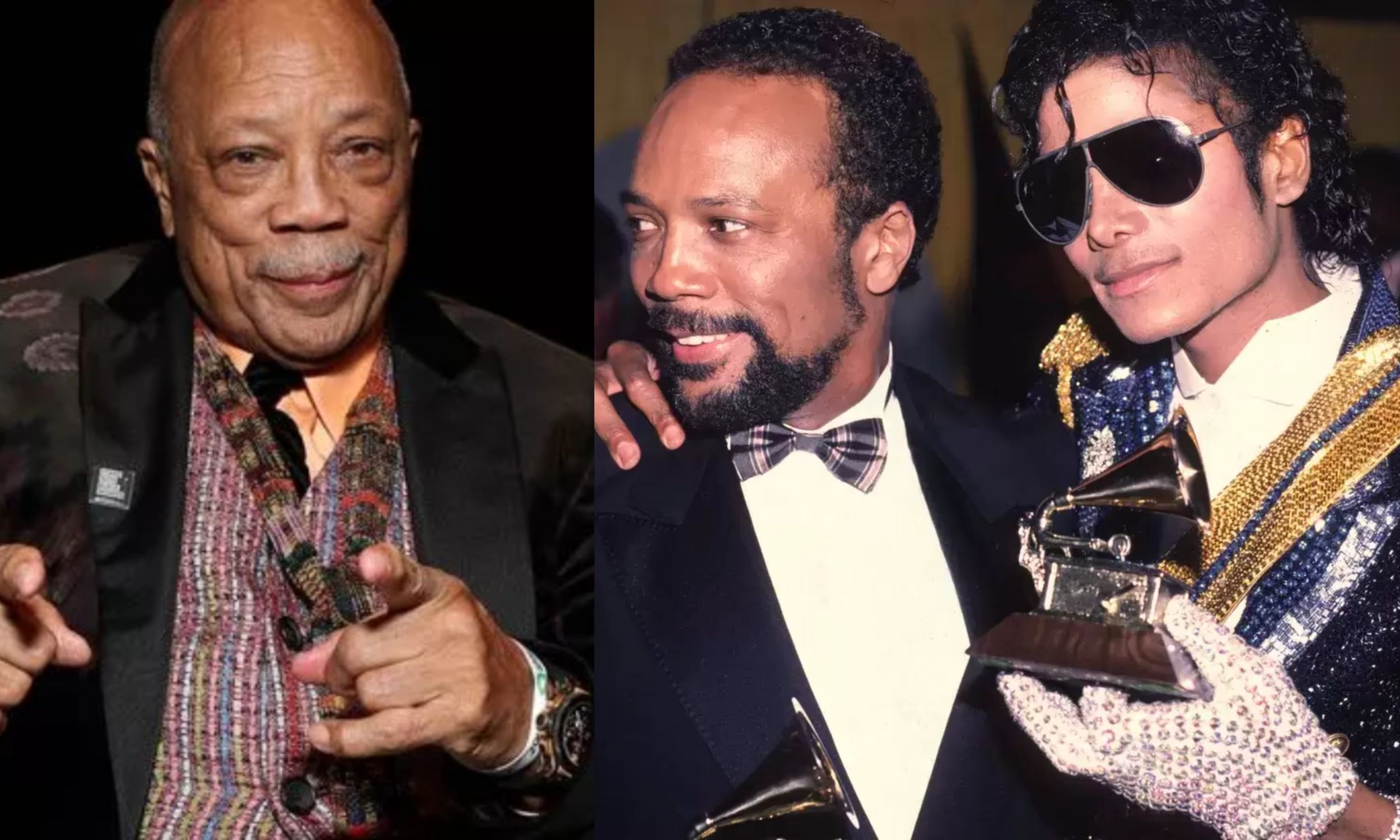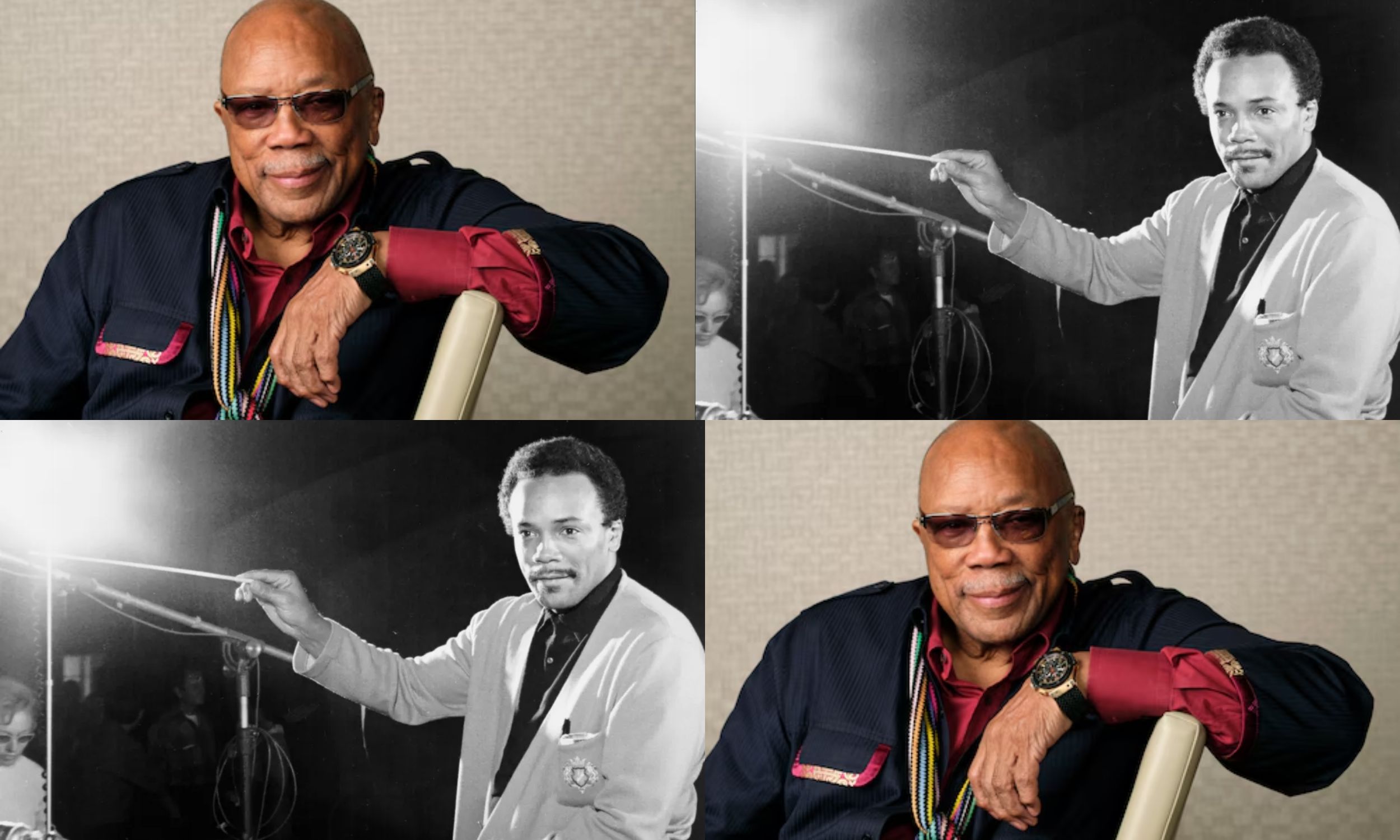The passing of Quincy Jones, a legendary musician, marks a remarkable moment in music history at the age of 91. On November 3, Jones died at his home in Los Angeles, with family by his side, as confirmed by his publicist Arnold Robinson to PEOPLE. The Associated Press was among the first to break the news.
In a heartfelt family statement, they shared, “With heavy yet grateful hearts, we announce the passing of our father and brother Quincy Jones. This loss is immense for our family, yet we celebrate the incredible life he led and acknowledge that there will never be another like him.”

Jones’ family reflected on his uniqueness and the profound impact he had on the world. “He was truly one of a kind, and his absence will be deeply felt. However, we find solace in knowing that the love and joy that characterized his life were shared globally through his artistic creations. Quincy Jones’ spirit will resonate forever through his music and boundless love.”
He leaves behind seven children: Rashida Jones, Kidada Jones, Kenya Kinski-Jones, Quincy Jones III, Jolie Jones Levine, Martina Jones, and Rachel Jones, as well as grandchildren Isaiah Jones Koenig, Quincy Renzo Delight Jones IV, and Nea Jones. He was also the godfather of actor-musician Quincy Brown, named in his honor.
In a near-fatal incident in 1974, at the age of 41, Jones faced a brain aneurysm that required surgery. Shortly after, he was informed of a second aneurysm that posed a severe risk, leading to another operation. At the time, doctors gave him a grim one-in-a-hundred chance of survival.
Describing the experience to GQ in 2018, he remarked, “It was terrifying, like someone blew my brains out. The main artery to your brain explodes, you know.” Quincy Jones was born on March 14, 1933, in Chicago, and began his rise to fame as a trumpet player, performing with jazz legends such as Lionel Hampton and Dizzy Gillespie.
At 14, he escaped an abusive household by enlisting in the National Guard, although he lied about his age, stating he was 18. During his service, he experienced severe racism and a traumatic accident when a bus struck him and his friends on the way to a rodeo in Yakima. He survived, but the incident left him haunted, preventing him from ever driving again despite attempts to learn.
Jones’ expansive body of work and achievements is remarkable. He played a pivotal role as a producer and arranger for several music icons, including Frank Sinatra, Michael Jackson, Paul Simon, and Aretha Franklin.
One of his early successes was producing “It’s My Party” for a young Lesley Gore, who was just 16 at the time. The single soared to No. 1, establishing Gore as one of the youngest artists to achieve that feat. Jones also produced three subsequent Top 5 hits for Gore in 1963.
In the 1970s, he brought his production expertise to the funk duo The Brothers Johnson, producing their first four platinum albums and three Top 10 hits, including “I’ll Be Good to You,” “Strawberry Letter 23,” and “Stomp!”
Jones achieved monumental success as a producer in collaboration with Michael Jackson, overseeing three of his landmark albums: Off the Wall (1979), Thriller (1982), and Bad (1987). Thriller became the best-selling album in history, propelling Jackson to global superstardom.
The track “Billie Jean,” from Thriller, emerged as one of the most iconic songs of the 1980s, while “Beat It” showcased a groundbreaking fusion of R&B and rock. Jones not only produced these hits but also enlisted the late Eddie Van Halen to contribute the now-legendary guitar solo. He was instrumental in including “Human Nature,” a track initially dismissed but revitalized for the album.

Reflecting on his extensive career in a 2018 interview with Vulture, Jones stated, “Everything has been a source of pride. The variety of genres I’ve explored is astonishing. I’ve performed all types of music from bar mitzvah tunes to jazz and pop. Working with Michael Jackson felt second nature.”
In discussing Jackson, he emphasized his unmatched attention to detail. “Michael had an extraordinary eye for the details. His inspirations included icons like Fred Astaire and James Brown, and he learned from the best. That’s how greatness is achieved.”
Jones also played a crucial role in the production of “We Are the World,” a charity single co-written by Michael Jackson and Lionel Richie aimed at alleviating famine in Africa. The song became the top-selling single of 1985 and won four Grammy Awards, with Jones famously instructing the assembled artists to “Check your egos at the door.”
Reflecting on his involvement with “We Are the World,” Jones noted, “My earlier work with Donna Summer set the stage for me to produce this. I wanted the best choir possible, and many of the artists on that project had worked with me previously. This was a familiar environment for me.”
He further stated, “I firmly believe in music’s power to unite people for a greater cause, and ‘We Are the World’ exemplifies that notion. Its global resonance continues to be felt.”
In addition to his prolific music career, Jones created memorable theme songs for popular sitcoms such as Sanford and Son and The Fresh Prince of Bel-Air, marking the beginning of Will Smith’s transformation from rapper to Hollywood star.
As a composer, he earned an Oscar nomination for his score for the 1985 film The Color Purple. His album Body Heat reached No. 6 on the Billboard 200 chart in 1974, and he recorded several successful albums featuring star vocalists, including James Ingram, Ray Charles, and Chaka Khan.
His works from the late ’70s and ’80s achieved platinum status, including the albums Sounds…and Stuff Like That!!, The Dude, and Back on the Block, the latter winning a Grammy for Album of the Year and producing multiple Top 40 singles.
In 1980, he founded Qwest Records, signing artists like George Benson, for whom he produced the disco hit “Give Me the Night,” and Patti Austin, whose duet with James Ingram, “Baby Come to Me,” reached No. 1 in 1981. Other signees included Frank Sinatra, Tevin Campbell, and New Order.
Jones’ personal life included three marriages: to Jeri Caldwell from 1957 to 1966, to Swedish actress Ulla Anderson from 1967 to 1974, and to Peggy Lipton, with whom he had two daughters, Rashida and Kidada, from 1974 to 1990. He also had a relationship with actress Nastassja Kinski from 1991 to 1995, resulting in the birth of their daughter, Kenya, a model.
While his creative output diminished in his later years, Jones remained active in charitable efforts and contributed to the soundtrack of the upcoming film Lola, scheduled for release in 2024. When discussing retirement in a 2018 GQ interview, he asserted that he still had much more to offer, saying, “I feel like a child, man. I’m just getting started.”


